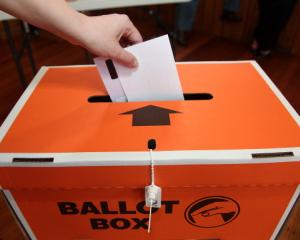Many New Zealanders, especially older citizens, have bank deposits. Returns are low - after tax, they might barely be above the rate of inflation - and they are drifting lower.
The corollary is the risk of losing the investment is also low. This is an underlying tenet of investment; generally higher risk equates to higher returns and lower risks to lower returns.
But banks, even the big ones, are not entirely safe. They could collapse in a crisis, and any "run on banks" is a financial and social nightmare.
During the 2007-08 Global Financial Crisis, the subprime mortgage fiasco was followed by the failure of investment bank Lehman Brothers. Massive bail-outs were needed to prevent the collapse of the economic system.
Taxpayers had to save banks. They were "too big to fail". It was during the crisis, too, New Zealand was forced at short notice to follow Australia and introduce a temporary deposit guarantee scheme.
When push comes to shove, political pressures ensure the Government will step in, as it also did for BNZ (1990), Air New Zealand (2001) and private insurer AMI in 2011.
New Zealand should introduce a scheme to try to avoid such taxpayer-funded bail-outs for banks, despite many practical issues to be worked through. In theory, big banks would fail and hundreds of thousands of small, and often vulnerable, investors would lose their savings along with everyone else. In the real world, the Government has little choice but to intervene.
Further, the big four banks are all Australian-owned. Our Government again is likely to have to follow what happens in Australia.
At present, the Government has a fall-back position should a bank founder, Open Bank Resolution (OBR). The Reserve Bank would shut the bank, reopening it straight away. Depositors, meanwhile, to help recapitalise the bank, would take a "haircut", losing a percentage of their money.
The principle is that savers would not lose all their money. They would also quickly have access to what was left.
This seems well and good. In practice, though, the taxpayer would be liable yet again. Confronted with many thousands of modest investors (who will have been receiving modest returns) losing some or much of their money, the Government could well be forced to act again.
A bank deposit scheme, of the type of version envisaged by Finance Minister Grant Robertson, and despite inevitable anomalies and imperfections, would protect savers of relatively small amounts. Figures of $30,000 to $50,000 are proposed. The guarantee scheme would be funded by banks, with at least some of the cost likely to be passed on to bank consumers. The Government would act as an extra backstop, and the OBR would stay in place and be used if required.
New Zealand banks have $170billion in deposits, and the suggested limits, low by international standards, cover 90% of deposits and 40% of deposited funds.
The purists would argue guarantees undermine investor judgement and bank accountability. But small investors lack the financial knowledge to monitor banks. That can be left to the large and wholesale depositors.
They have that incentive because they would still lose their money if a bank collapses. In contrast, when the Government bails out a bank, they, too, are shielded from losses, the taxpayer paying the bill.
Also being considered are strengthened bank accountability and increases in the amount of capital banks have to hold.
Every other country in the OECD has a deposit guarantee scheme apart from Israel, and it is introducing one.
The timing for New Zealand's guarantee scheme is appropriate. The details and can be debated and finalised in the coming year when the economy is strong. It is far better to be prudent and prepare for possible misfortune at times like this rather than when it is too late.
Comments
If we do this, we abandon capitalism, and embrace a form of communism. When organisations are too big to fail, and are underwritten by the state, we have socialised banking, not capitalism.
In other words, by Gandalf the Grey:
"Tell me, friend, when did Saruman The Wise abandon reason for madness?"
I agree, apart from the big binary economic models' variable worthiness.
Capitalism is robust, a fortune or your shirt. Under Market Forces, banks and airlines/finance companies would go to the Wall, in a 'crash'. NZ, USA, UK, do bailouts.
Bank customers will be picking up the tab for this. The Government is effectively passing the costs of a future possible risk onto bank customers now.
Never heard of moral hazard, or the 1980s US bank crisis?
Deposit insurance may help protect depositors in the event of a bank failure, but it also increases the likelihood of such a failure occurring.











